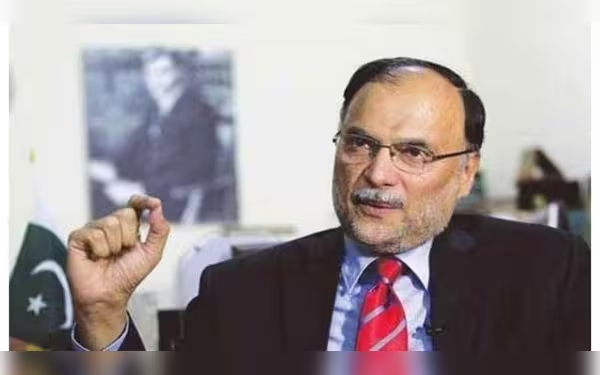Sunday, December 22, 2024 03:53 AM
Ihsan Warns PTI Against Disrupting Law and Order in Pakistan
- PTI accused of disrupting law and order.
- Peaceful protest must adhere to legal frameworks.
- Public support for PTI protests remains low.
 Image Credits: urdupoint
Image Credits: urdupointRana Ihsan Afzal Khan warns PTI against disrupting law and order under the guise of protest, emphasizing the need for peaceful dialogue.
In recent developments, the political landscape in Pakistan has been marked by rising tensions, particularly involving the Pakistan Tehreek-e-Insaf (PTI) party. The Coordinator to the Prime Minister, Rana Ihsan Afzal Khan, has raised serious concerns regarding the actions of PTI, suggesting that the party is attempting to disrupt law and order under the pretense of political protest. This situation has sparked a debate about the boundaries of political expression and the responsibilities that come with it.
Rana Ihsan Afzal Khan emphasized that while peaceful protest is a constitutional right, it must be conducted within the framework of the law. He pointed out that the ongoing threats from PTI indicate a clear intention to create unrest rather than engage in constructive political dialogue. This assertion raises important questions about the role of political parties in a democratic society and the impact of their actions on national stability.
According to Ihsan, PTI's attempts to challenge the state’s authority are unacceptable and will not be tolerated. He warned that the country is at a critical juncture and cannot afford any turmoil at this time. The implications of such unrest could be far-reaching, affecting not only the political climate but also the everyday lives of citizens who seek peace and progress.
Furthermore, Ihsan noted that despite PTI's efforts to disrupt the peace and progression of the country, their protests have largely failed to gain traction among the general populace. This lack of support suggests that many citizens are wary of the party's destructive narrative and prefer stability over chaos.
The current situation serves as a reminder of the delicate balance between political expression and the need for law and order. As Pakistan navigates these challenging times, it is crucial for all political entities to prioritize dialogue and cooperation over confrontation. The future of the nation depends on the ability of its leaders to foster an environment where peaceful discourse can thrive, ensuring that the rights of citizens are upheld while maintaining the integrity of the state.













